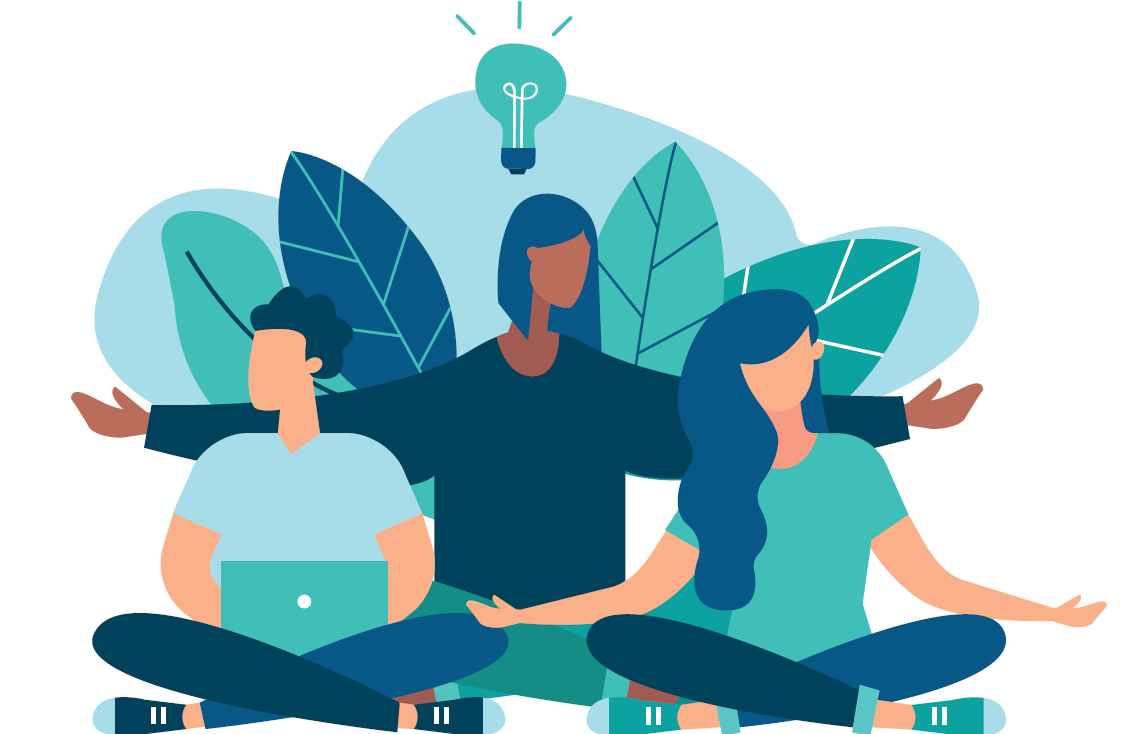With COVID-19 changing almost every aspect of our lives, it may be extremely stressful and anxiety-inducing. For a multitude of reasons, COVID has taken a significant toll on all of us: jobs are lost, we don’t see our friends as often, we feel isolated, we stay inside all day, and for many more reasons. Feelings of anxiety and loneliness tend to flood our minds. Of course, we can watch Netflix all day along with a pint of ice cream but is that enough in sufficing our mental wellbeing?
Probably not. Experts will probably say try to incorporate some exercise, try to eat healthily, take mental breaks, or avoid long durations of screen time. Mental health has especially been a topic of importance since our mental wellbeing is at higher risk during the stressful course of COVID. Aside from COVID, mental health should always be a priority. For me personally, I always have a hard time deciding what I should do to improve my overall mental wellbeing. Should I eat more healthy food? Exercise more? Do a hobby? Spend time with friends?
I always find myself lost with the available choices or finding that they don’t make me feel more fulfilled. Not until I’ve recently discovered mindfulness exercises. Mindfulness stretches back to the ancient religion of Buddhism. Through this religion, adherents practice mindfulness to become aware of their present thoughts, feelings, and senses. Furthermore, mindfulness has adapted itself and grown through the field of psychology. It has certainly become monumental in treating stress, anxiety, depression and a myriad of other mental related topics. Mindfulness has transformed itself into a treatment intervention and a means of self-care. It displays a change from a “doing” mode to a “being” mode. By immersing yourself in the “being” mode, it allows you to appreciate the present moment and let you be thorough with your thoughts and sensations.
So why not try mindfulness practices during your busy day just to alleviate some of the stress? Mindfulness is not difficult but it certainly requires practice. Mindfulness allows the brain to readjust your focus, minimize your worrying and ultimately eliminate your stress. It is so much more than stimulating relaxation throughout your body. It involves incorporating your 5 senses to achieve a higher degree of self-awareness.
Ways to practice mindfulness:
- Take the time to just mindfully attend to small things in your busy schedule such as eating an apple.
- Try to focus on your breathing, keeping detail to your breath flows and your thoughts
- Simply take the time to pay attention to any day task like folding your laundry
- Try the “body scan” which enables you to become aware of your sensations. Focus on each part of your bodily functioning such as the way you breathe, the way your head feels on your bed, the number of times you blink, the thoughts in your head.
Benefits of practicing mindfulness:
- the ability to tackle stress more effectively
- making choices with more clarity and awareness
- strong sense of self-awareness
- positive self-image
- strong understanding of your thoughts and feelings
- strong emotional regulation
Next time you find yourself feeling overwhelmed or anxious. Take some time to practice mindfulness. Whether it be right when you wake up in the morning or coming home from a stressful day at work. Regardless of the moment, mindfulness will lead to positive outcomes. It worked for me! Give it a try.
Disclaimer:
Note: The Free Your Mind Mental Health Society is an independent youth-led organization. The contents of this blog are not intended to be a substitute for professional medical advice, diagnosis, or treatment. Always seek the advice of your physician or another qualified health provider with any questions you may have regarding a medical condition. In the event of a medical emergency, please call your doctor or 911 or other local emergency numbers immediately.
Citations:
Shebib, B. (2003). Choices: Interviewing and counselling skills for Canadians. North York, Ontario: Pearson.
Can mindfulness exercises help me? (2020, September 15). Retrieved January 21, 2021, from https://www.mayoclinic.org/healthy-lifestyle/consumer-health/in-depth/mindfulness-exercises/art-20046356#:~:text=Mindfulness%20is%20a%20type%20of,mind%20and%20help%20reduce%20stress.
Getting Started with Mindfulness: A Toolkit for Early Childhood Organizations. (n.d.). Retrieved January 21, 2021, from https://www.zerotothree.org/resources/2896-getting-started-with-mindfulness-a-toolkit-for-early-childhood-organizations
Hick, S. F., & Stokes, J. (2017). An Introduction. In Social work in Canada: An introduction (pp. 28-29). Toronto, ON: Thompson.


